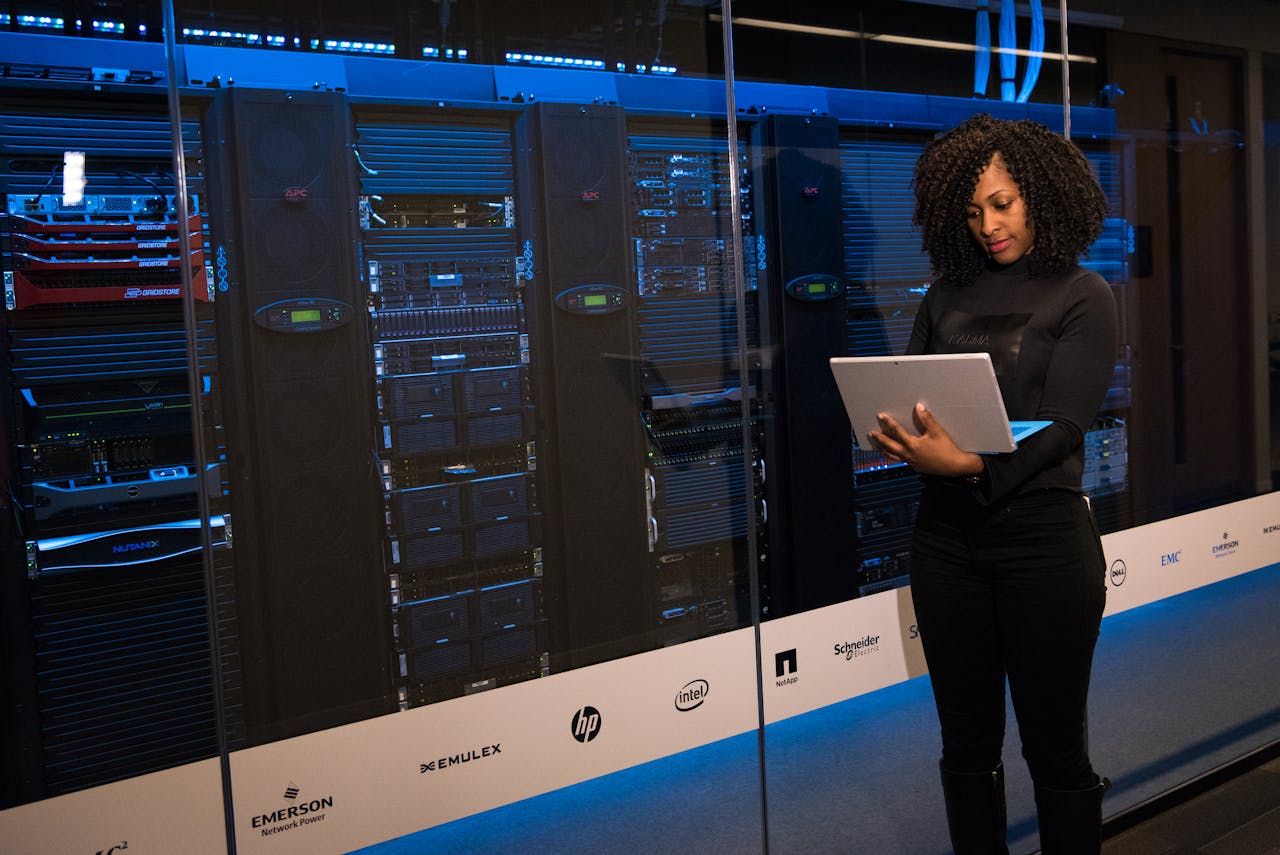Cyber threats are evolving at an unprecedented pace, making endpoint security more essential than ever in 2025. Businesses face a growing number of sophisticated cyberattacks, an expanding remote workforce, and an increased reliance on digital systems. Without proper endpoint protection, organizations risk financial loss, data breaches, and operational disruptions.
What Is Endpoint Security?
Endpoint security is the practice of protecting individual devices, such as computers, smartphones, tablets, and IoT devices, that connect to a business network. These endpoints serve as entry points for cybercriminals, making them vulnerable to malware, ransomware, phishing, and other threats. Strong endpoint security solutions proactively detect, prevent, and mitigate risks before they can cause damage.
The Growing Cost of Cybercrime
Cybercrime is escalating at an alarming rate. Experts predict that global cybercrime costs will rise by 15% annually over the next five years, reaching an estimated $10.5 trillion per year by 2025, a dramatic increase from $3 trillion in 2015. This surge underscores the urgent need for businesses to invest in robust endpoint security solutions to safeguard their data, finances, and operations.
For a deeper dive into emerging threats and cybersecurity trends that businesses should watch in 2025, check out our insights in Cybersecurity Trends to Watch in 2025.
Uncertain about which IT service model fits your business best?
Our team is here to help you navigate the options and answer all your questions so you can make the best decision for your business. Get in touch for a free assessment today!
Why Endpoint Security Matters More Than Ever
Cybercriminals are constantly developing new attack strategies, and endpoint security is a frontline defense. Here’s why it’s critical in 2025:
1. Surge in Cyber Threats
Advanced cyberattacks, including AI-driven threats, zero-day exploits, and fileless malware, are becoming more common. Businesses need robust endpoint security to stay protected from these evolving risks.
2. Expansion of Remote and Hybrid Work
With employees accessing corporate networks from various locations and devices, the attack surface has grown. Unsecured personal devices and public Wi-Fi connections make endpoint security a necessity.
3. Ransomware on the Rise
Ransomware attacks continue to target businesses, encrypting valuable data and demanding payment. Endpoint security solutions equipped with real-time monitoring and automated threat detection help prevent these costly breaches.
4. Stronger Compliance Requirements
Regulatory frameworks like HIPAA, GDPR, and CMMC mandate stringent data protection measures. Endpoint security helps businesses maintain compliance and avoid penalties.
5. AI-Enhanced Cyberattacks
Cybercriminals are leveraging AI to craft highly targeted attacks. To combat this, endpoint security solutions now use AI and machine learning to detect anomalies and respond to threats in real time. AI-driven security tools have become essential in identifying evolving cyber threats before they cause damage. Learn more about how AI-powered cybersecurity enhances threat detection in our in-depth analysis: How AI-Driven Cybersecurity Enhances Threat Detection.
Endpoint Protection vs. Antivirus: What’s the Difference?
Many businesses still rely on traditional antivirus software, but endpoint protection offers a more comprehensive defense. Here’s how they compare:
- Antivirus (AV): Primarily scans for known malware and viruses, relying on signature-based detection.
- Endpoint Protection (EPP): Uses AI-driven analysis, real-time threat detection, and behavioral monitoring to prevent and respond to advanced cyber threats.
While antivirus software provides basic security, modern endpoint protection is designed to combat sophisticated cyber threats proactively.
Endpoint Protection vs. Firewall: How Do They Differ?
Firewalls and endpoint protection serve different purposes but work together to enhance security:
- Firewalls: Act as a barrier between a business network and external threats by filtering incoming and outgoing traffic.
- Endpoint Protection: Defends individual devices by detecting and blocking malware, phishing, and unauthorized access attempts.
A firewall provides network-level security, while endpoint protection ensures device-level security, making both essential for a multi-layered defense strategy.
Best Practices for Strong Endpoint Security
To protect against cyber threats, businesses should implement a multi-layered approach to endpoint security:
- Deploy Next-Generation Antivirus (NGAV) – Traditional antivirus is outdated; NGAV uses AI and behavior-based detection to block emerging threats.
- Utilize Endpoint Detection and Response (EDR) – EDR solutions provide real-time monitoring, detecting suspicious activity before it escalates.
- Adopt a Zero Trust Security Model – Restrict access to critical data by verifying all devices and users attempting to connect.
- Ensure Regular Patch Management – Keeping software and operating systems updated prevents attackers from exploiting vulnerabilities.
- Secure Remote Work Environments – Implement VPNs, multi-factor authentication (MFA), and endpoint security solutions to protect remote users.
- Provide Ongoing Cybersecurity Training – Educating employees on phishing, malware, and social engineering attacks strengthens overall security.
Comprehensive Cybersecurity Solutions
Endpoint security is just one piece of a broader cybersecurity strategy. Businesses must implement layered security measures to stay protected against evolving threats. Learn more about comprehensive cybersecurity solutions tailored to your business needs.
————————————————————————————————————
How Combined Technology Can Help
At Combined Technology, we provide comprehensive endpoint security solutions to help businesses in Tulsa and beyond safeguard their networks. Our managed IT security services include:
- Next-Generation Antivirus & EDR – Detects and responds to threats before they cause harm.
- Patch Management – Keep systems secure with automated updates.
- 24/7 Monitoring & Threat Detection – Proactive security to identify and stop cyber threats in real time.
With the increasing complexity of cyber threats, businesses need a proactive approach to endpoint security.
Get in Touch with Us

Safeguard Your Business with Tulsa's Top Managed IT Provider
At Combined Technology, we provide a flexible, tailored approach to meet your evolving IT needs. Safeguard your business against emerging threats with our expert-managed IT services and customized cybersecurity solutions.





